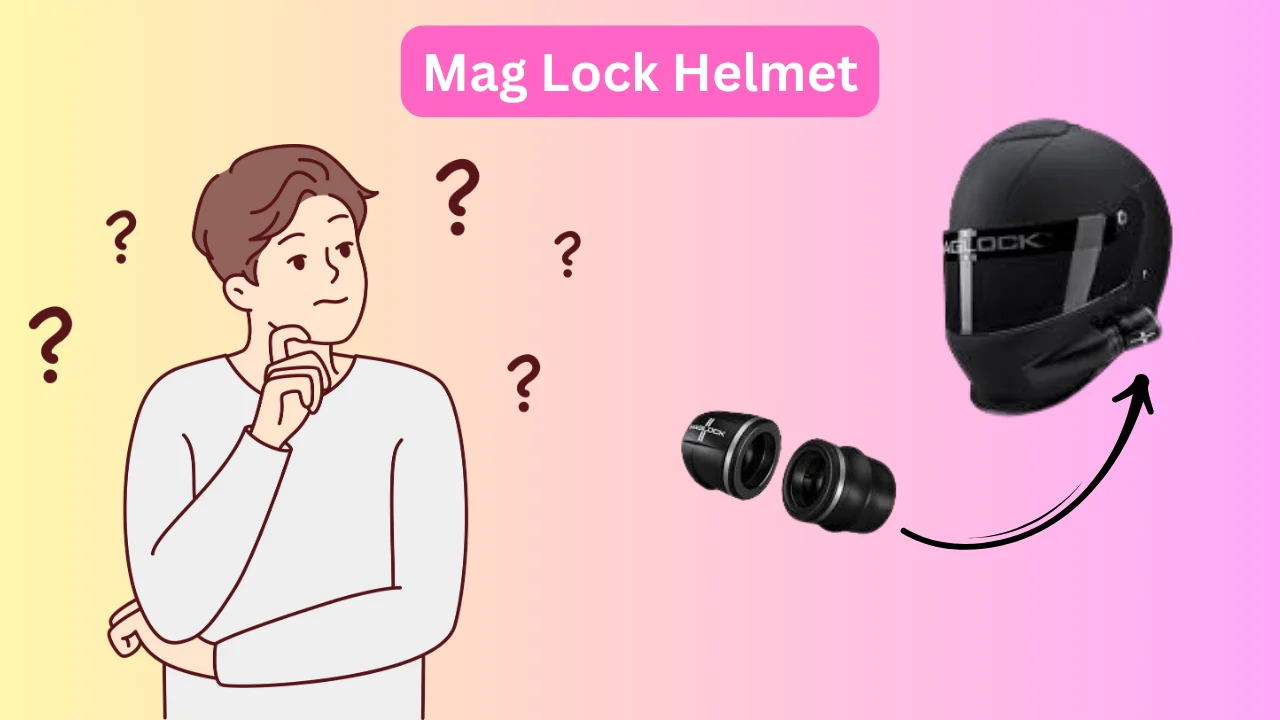Can you ride a motorcycle without a helmet in Florida is a misconception. While Florida does provide more flexibility than some other states, riding without a helmet is illegal unless specific conditions are met.
The law is designed to protect riders, reduce injuries, and ensure that riders meet certain requirements before opting out of helmet use.
This guide will explain why riding without a helmet is generally illegal, outline the legal conditions, and discuss the risks involved.
Quick Fix
Can you ride a motorcycle without a helmet in Florida? No, Riding without a helmet in Florida is illegal unless you meet specific insurance requirements. Always prioritize safety by wearing a DOT-approved helmet and proper eye protection, regardless of legal exemptions.
Understanding the Core Law
Florida Statute §316.211 clearly lays out the state’s motorcycle helmet requirements. In summary, anyone under the age of 21 must wear a helmet at all times while riding a motorcycle. There are no exceptions to this rule, and any young rider caught without a helmet is subject to fines and other legal penalties.
For riders aged 21 and older, helmet use is only optional if they have at least $10,000 in medical insurance coverage specifically for motorcycle injuries. The intent of this law is to ensure that, in the event of an accident, the rider has some financial coverage for medical expenses. Without this insurance, riding without a helmet is unequivocally illegal.
Why Riding Without a Helmet Is Illegal Without Insurance
Many riders mistakenly assume that Florida has lenient helmet laws allowing anyone to ride without a helmet, but this is far from the truth. If you’re over 21 and choose to ride without a helmet, you must have proof of at least $10,000 in medical insurance coverage for motorcycle-related injuries. Failing to meet this requirement is a legal violation and can lead to fines, license points, or even suspension of riding privileges.
Penalties for Not Complying with the Law
When caught riding without a helmet and not meeting the insurance requirements, the legal consequences are significant. Penalties can include:
- Fines ranging from $100 to $500 for initial and repeat offenses.
- Points on your driving record, which can increase your insurance premiums.
- Possible suspension of your motorcycle license for serious or repeated violations.
The law is not just a formality; it’s a legal requirement that impacts your driving record, insurance rates, and ability to legally ride in Florida. For example, in 2023, nearly 45% of motorcycle fatalities involved riders who were not wearing helmets. The consequences are not only legal but could be life-altering in the case of an accident.
Helmet Requirements for Different Types of Motorcycles and Scooters
Florida’s helmet law also extends to vehicles like mopeds, scooters, and other low-power vehicles. The rules are:
- For vehicles over 50cc or with a top speed exceeding 30 mph, helmets are mandatory unless the rider is over 21 and has the required insurance.
- For scooters and mopeds under 50cc, the helmet requirement may not apply, but insurance is still recommended.
The misconception that mopeds and scooters are exempt from helmet laws leads many riders to unintentionally break the law. Low-power vehicles are not a loophole in Florida’s helmet regulations.
Eye Protection Is Also a Legal Requirement
Even if you meet the conditions for riding without a helmet, eye protection is legally required. Acceptable forms of eye protection include:

- DOT-approved helmet visors.
- Certified safety glasses.
- Goggles specifically designed for motorcycle use.
Standard sunglasses do not qualify, as they are not designed to protect against the kinds of impacts that riders may encounter. Riding without eye protection is illegal and can result in fines, adding another layer of legal requirements for motorcyclists in Florida.
Why the $10,000 Insurance Requirement Is Crucial
The law is clear: riders 21 and over must carry at least $10,000 in insurance coverage specifically for motorcycle injuries to ride without a helmet legally. This insurance is not optional, and it serves a critical purpose. Without this coverage, the rider could be left with overwhelming medical bills in the event of an accident.
Florida requires this insurance because motorcycle accidents are significantly more likely to result in serious injury compared to car accidents. Medical costs from motorcycle accidents can easily exceed $50,000, meaning that even if you comply with the minimum insurance requirement, the coverage may still be inadequate for serious injuries.
DOT Standards Are Mandatory for Legal Helmets
If you choose to wear a helmet, it must meet DOT standards. Non-compliant helmets, such as novelty helmets, do not offer adequate protection and are considered illegal. A DOT-compliant helmet will have a label or sticker indicating that it meets federal safety standards.

The use of a DOT-approved helmet is not just about legality but about safety. Studies show that wearing a DOT-certified helmet reduces the risk of severe brain injury by 67% in the event of a crash. In my own experience, having a high-quality helmet has provided peace of mind and added protection on every ride.
How Florida’s Helmet Laws Compare to Nearby States
Understanding how helmet laws differ between states can prevent legal issues when traveling. For instance:
- Georgia requires helmets for all riders, regardless of age or insurance status.
- Alabama also mandates helmet use for all motorcyclists, with penalties for non-compliance.
For those planning to travel outside Florida, it’s wise to carry a DOT-approved helmet even if local laws allow helmet-free riding. The legal landscape changes rapidly when crossing state lines, and the penalties for non-compliance can be steep. I always keep my helmet ready for these occasions, as it’s better to be safe and avoid legal headaches.
Impact of Riding Without a Helmet
Riding without a helmet significantly increases the risk of injury or death in an accident. Statistics from 2023 show that nearly 45% of motorcycle fatalities in Florida involved riders who were not wearing helmets. This risk is not just theoretical; it’s a reality that affects real people every day.

In addition, not wearing a helmet can complicate legal claims after an accident. Insurance companies often reduce payouts or deny claims altogether if the rider was not complying with helmet laws. Legal repercussions can extend beyond fines and driving record points; they can impact the financial settlement you may be entitled to in an accident.
What Happens If You Are Caught Riding Illegally?
If law enforcement catches you riding without a helmet in violation of Florida’s helmet laws, you could face multiple consequences:
- Fines ranging from $100 to $500, depending on the severity of the violation.
- Accumulation of points on your driving record, which can increase insurance costs.
- Potential suspension of your motorcycle license for repeated violations.
It is important to understand that even minor violations of helmet laws can have serious repercussions. If you’re in an accident while riding illegally, your chances of receiving adequate compensation for injuries diminish significantly.
Why You Should Wear a Helmet Even If It’s Not Legally Required
The freedom to choose whether to wear a helmet may seem appealing, but the statistics don’t lie. Nearly 45% of motorcycle fatalities in 2023 involved riders who were not wearing helmets. The data show that helmets are not just a legal formality but a crucial part of rider safety.
From my own experience, wearing a helmet has always been a smart choice, even when the law allows me to ride without one. It’s not just about following the law; it’s about protecting myself and my loved ones. In my view, choosing to wear a helmet is always the better option.
Safety Tips for Riding in Florida
- Always Wear a DOT-Approved Helmet: Even if you meet the legal requirements to ride without one, a helmet significantly reduces the risk of head injury.
- Use Eye Protection: Comply with Florida’s legal requirement by wearing safety glasses or a visor.
- Invest in High-Quality Motorcycle Gear: Protective jackets, gloves, and boots can reduce injury severity.
- Maintain Your Bike Regularly: Regular inspections ensure your brakes, tires, and lights function properly.
- Take a Motorcycle Safety Course: It can enhance your skills and potentially lower your insurance rates.
Conclusion
The question of “Can you ride a motorcycle without a helmet in Florida?” has a straightforward answer: No, not without meeting specific legal conditions.
Florida law requires all riders to comply with helmet regulations, and riding without meeting those requirements is illegal. Understanding these laws can help you avoid legal issues, fines, and potentially life-threatening situations.
Don’t gamble with your safety or your legal standing. Always ensure you meet the legal requirements, wear a DOT-approved helmet, and take additional safety measures when riding. The law is not just about restricting freedom; it’s about saving lives.
Learn more about motorcycle helmet laws like does tennessee have a helmet law for motorcycles or is it legal to ride a motorcycle without a helmet with me.
FAQs
- Is it legal to ride without a helmet if you’re renting a motorcycle in Florida?
No. Unless you are 21 or older with $10,000 in motorcycle-specific insurance coverage, it’s illegal.
- Does riding without a helmet affect insurance claims?
Yes. Insurance companies may reduce or deny coverage if you were riding illegally.
- Are helmet laws different for motorcycles with sidecars?
The same helmet laws apply regardless of whether you are riding a traditional motorcycle or one with a sidecar.





